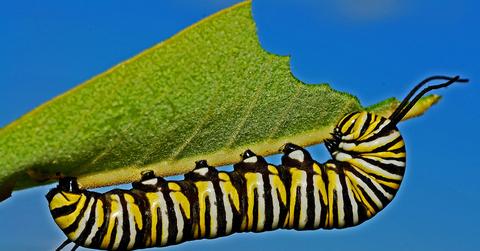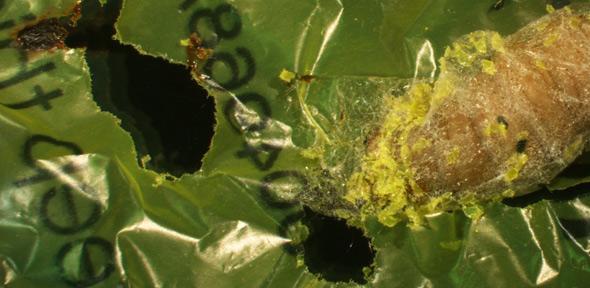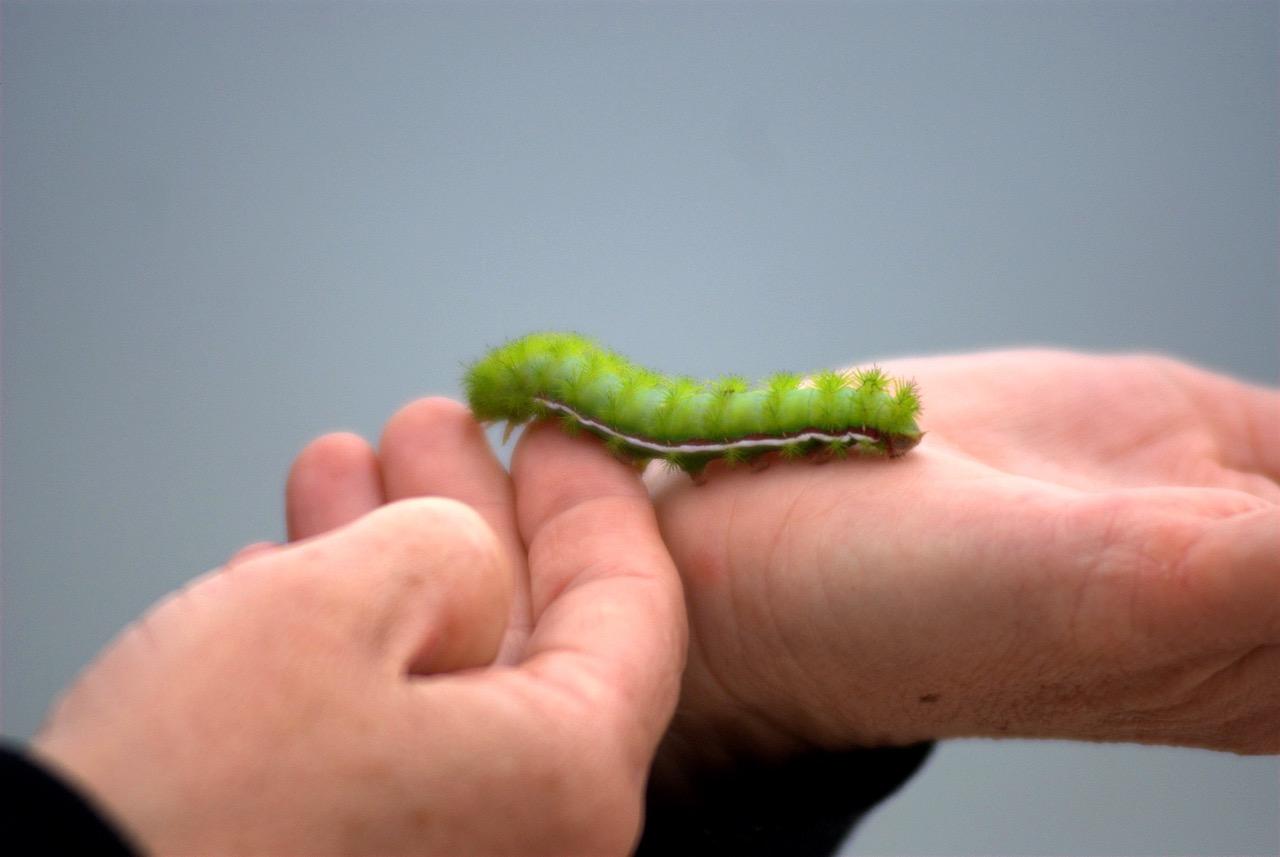Scientists Discover How Wax Worms Could Be The Answer To Plastic Waste
The University of Cambridge is studying the phenomenon of wax worms digesting plastics, which typically takes centuries to degrade, in a matter of hours. Here's how this could have a huge impact on the environment and plastic waste.
Updated May 30 2019, 4:04 p.m. ET

Imagine if there was always a creature that could eliminate waste. For those that have pets, this happens quite frequently when giving them scraps from a meal. Now there may be a chance to do something better than throwing unnecessary plastic bags away. In this case, giving them to wax worm caterpillars.
Spanish researcher Federica Bertocchini discovered the wax worm’s ability to not only chew through plastic, but digest it. These caterpillars were found when Bertocchini does her other job, beekeeping. When finding the insects destroying the inside of the hives, she removed around a hundred and placed them into a plastic shopping bag.
In less than an hour, holes started to form as the insects were chomping away at the plastic. There was a significant drop in how much of the bag was left after just 12 hours. It made sense according to Bertocchini, explaining that the wax the caterpillars ate and polyethylene, which is what the shopping bag is made out of, have a similar structure. According to a report from the University of Cambridge, the rate of these plastics dissolving was worth noting.
“Scientists say that the degradation rate is extremely fast compared to other recent discoveries, such as bacteria reported last year to biodegrade some plastics at a rate of just 0.13mg a day. Polyethylene takes between 100 and 400 years to degrade in landfill sites.”
The report also detailed how much polyethylene is used. It’s in nearly half of plastic products throughout Europe and “people around the world use around a trillion plastic bags every single year.” With all that use, there’s a lot of waste that’s thrown around. Most of that plastic ends up in landfills and not recycled properly. In the same report, it details that 38% of the plastic in Europe is found in landfills.
That means it’s extraordinary to find a natural solution to aid in the degradation of plastic. One of the researchers alongside Bertocchini, Cambridge’s Paolo Bombelli, confirmed that it wasn’t how the caterpillar ate the plastic that broke things down, but what they produce that destroys the polyethylene.
“The caterpillar produces something that breaks the chemical bond, perhaps in its salivary glands or a symbiotic bacteria in its gut. The next steps for us will be to try and identify the molecular processes in this reaction and see if we can isolate the enzyme responsible.”
Having a bunch of caterpillars roaming around and eating plastic certainly wouldn’t be the most efficient method, and that could also be dangerous. Ramani Narayan of Michigan State University says that toxins could be introduced as a result of these plastics breaking down, and that could have an affect on the food chain. Instead, scientists will try to find a way to produce the same chemicals that the insects have when breaking down the plastic.
The study is also expected to receive some pushback. By announcing a way to degrade the polyethylene, that could put less of a focus on the importance of recycling the plastic. However, there should be a middle ground for both. As we continue to push for more recycling, we can also have one of the most efficient processes to break down plastic that is otherwise nearly impossible to disintegrate.

